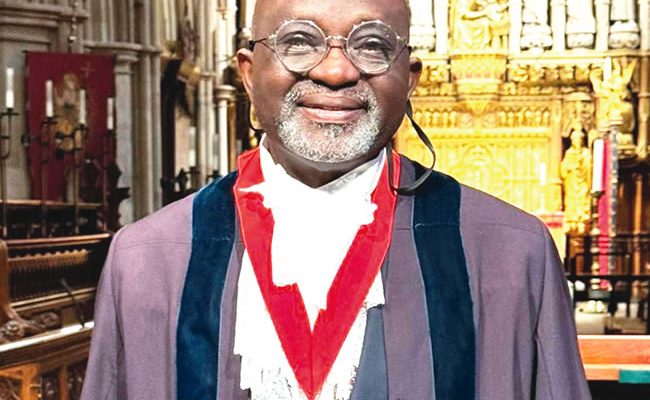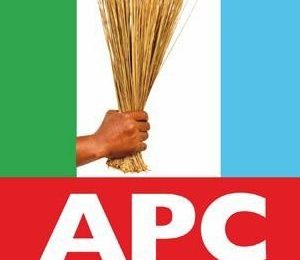
Sunny Lambe is the Deputy Mayor of London Borough of Southwark. He is the Labour and Cooperative Councillor for South Bermondsey Ward at Southwark. In this Interview, he shares the story of how he ventured into politics as well as other aspects of his life with SEGUN KASALI.

The name Lambe is not your typical Yoruba name. Who are the Lambes?
The Lambes are from Ibadan, in Oluyole. Our family is prominently known in a place called Agbo-Ile Elelede. That is where my grandfather originated from. My grandfather had many wives and was the baale of Aiyegun in Moniya. In Ibadan, we usually say “everyone to his father’s name”. Lambe is my father’s name, and he is called Olorunlambe..
Something must have made your grandparents give your father that unique name. Tell us about your father.
Olorunlambe was an abiku. According to stories told, there were only two children from his mother. His mother died when he was very young. Myself and my older sister grew up with his elder sister, who we usually called Mama Eleko, because our mum left when we were very young. My dad’s mother died when he was very young. In fact, his older sister was like a mother to him because as an abiku he was given birth to many times. His mother had many kids [after giving birth to his sister] before my father survived and that is why he was given the name Olorunlambe, meaning we are begging God to let this one stay. My dad was a bricklayer. He started on our grandfather’s plantation because he had a lot of farms. He was like a rebel. He said he did not want to join him in farming and so went ahead to learn bricklaying. He was helping people to build houses and that’s how I actually knew about building myself. After many years, he lost his sight. In fact, that was why he actually became a Christian as well. His friend invited him to a church and it was through the church he regained his sight. My grandfather was neither a Christian nor a Muslim. He was an atheist. And then when we were growing up, we became part of my father’s Christian life. My mom was a very difficult one. We were three in number. Initially, she had a boy but he died and thereafter had my sister. After my sister, she then had me. After me, she then had my younger sister, Toyin. Both of them are late by the way. The marriage broke down due to some medical conditions my mom had and so I ended up living with my dad.
What were the traits you picked from both?
The values of hard work, honesty and integrity. I remember when I first came to the United Kingdom, my dad would say “Remember the son of whom you are. Remember the family you come from.” I picked community service from him and, of course, generosity. My dad would give you his last penny. Regarding my mom, I cannot honestly say because we did not spend enough time together.
Which of the experiences you had has strong impressions on you even till today?
When my dad lost his sight, he could no longer do his bricklaying work. He then worked as a security man for the American consulate. Besides, I recall that I did not start school early because we were being moved from living with one family to another. There was no stability. So, I did not start primary school until I was 13 years old. This was because I was always with my dad. He never remarried; he died as a single parent. I would say the most stable place we ever lived was when we were in Ring Road, Ibadan. I went to Ibadan Municipal Government Primary School. I was the Games Prefect, Head Prefect and eventually took them to the final of the competition for the first time in their football history. I could not have had education at all if not that the school gave me a chance. I was one of the oldest in the school at that time.
How did you feel being the oldest?
That gave me the opportunity to understand the importance of education. On the negative side, I remember they did not want to admit me in the school because they felt I would be beating up everyone in the school (laughs). Thank God for a family friend who was a teacher in that school. She was the one who spoke out that I was a good boy and that I was not troublesome. So, because of my stature, people really did not know I was one of the oldest. I’m thankful to my dad for paying for tutorial lessons, I was blessed. I came first most of the time.
Does that mean you didn’t beat up anyone in school then?
Yes, but I think somebody probably beat me up (laughs). You know you make friends as you make enemies when you are successful. Even when I run away from any leadership role, I have always been blessed to be invited to it. So, what happened was that someone I called my friend came and started kicking me for the first, second and third time and I reacted. But I did not believe the guy would wait until the last day of the school to come and attack me. But, he did not get away with it, I can tell you that (laughs).
What informed your choice of study at the university?
To be honest, I wanted to study Agronomy, Accountancy, Business Management and all of these things. But I looked within myself and what I was good at, even though I had the knowledge of agronomy from farm and also sales management while working for African Press Limited (APL). Funnily enough, I did not want to travel to the UK initially to study. But a good friend of mine, Jimi, put the idea in my head. So, he said “Sunny, have you ever considered going abroad?” The fact was that I had the opportunity to travel to the United States while my dad was working at the consulate, but he refused. I told him [Jimi] I did not know anybody there. I asked him if he did and he said yes, there were a few of his friends there. So, I said alright. If you are going to show me the way, it is fine. You won’t believe that I got my passport within six months. After we both got all the necessary documents, he could not go because his sister was going to America. So, he gave the money he wanted to use for his own ticket to his sister. So, you can see that the person who was going to show me the way was not going with me.
So, what happened when you got there?
Before then, I had few neighbours around that I knew had just arrived from the United Kingdom. So, they told me, “Don’t worry, I got a friend in Peckham.” So, they gave me the address of one uncle and his phone number. So, I got to Lagos the next day, but I could not go with the flight and because of that I slept at the airport for three days.
Why?
The airline overbooked. It is like the domino effect. It just affects everything else. All the flights were affected and they told me it is okay we would get you another flight tomorrow.
So, what happened when you got to the UK?
Uncle Jimmy connected me to his friend, Uncle Lanre, and his family. I stayed with them but, of course, I had some money with me. Mind you, you don’t tell a British you are going to stay long. After a few days, I then started learning from those who had been there. So, I started studying Banking at City Business College in London. Then, it was easier to come in as a visitor but changed to student. However, what you must never do is to allow your visa to expire before the change.
You’ve always been mentioning how Papa Obafemi Awolowo influenced you. Can you tell us about it?
Yes and it was indeed a great one. I did not want to be a politician, but Papa Awolowo influenced me. I worked in African Press Limited, the sister company of the Tribune Titles [African Newspapers of Nigeria (ANN)] before I came to the United Kingdom. In 1979, I saw how Papa was robbed in the election and how everybody became a mathematician that year in 1983. That put me off politics completely and I believed politics was not for honest people and those who genuinely wanted to serve the common people. So, when I came to London 38 years ago, I did not want to get involved in politics. But I was the first union leader for Part-Time Postal Workers from 1989 to 1994 successfully fighting for improved working conditions. I was elected and, in fact, I had only stayed about three years in the country then. Glory be to God; I successfully fought for it and when labour came to power in 1998, our demands became law.
READ ALSO: Nigeria condemns terrorist attack in Mali







